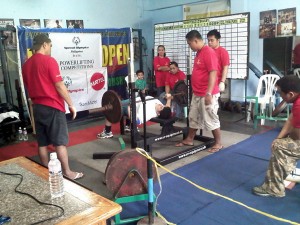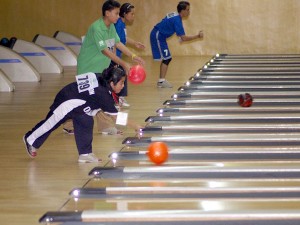38 Filipinos to shine in World Special Olympic Games in Greece
Manila, Philippines—The only game in the world where all participating athletes were winners—The Special Olympics World Games.
“They are winners in their struggle for respect in their diversity, they are winners in their struggle for self-esteem, they are winners in their struggle to defend their special abilities,” Alex P. Babst, Special Olympics Philippines National Executive Director said.
Article continues after this advertisementThis summer, 38 intellectually disabled Filipino athletes will be competing against 170 countries in the 13th World Summer Games in Athens Greece from June 20 to July 4.
The Special Olympics Philippines which was founded in 1978 will be sending 38 athletes, 12 coaches and two officials for this year’s summer games said Babst.
Presently, they have 12,500 intellectually challenged athletes and 4,000 volunteer coaches.
Article continues after this advertisement“Our mission is to develop the forgotten, neglected handicapped Filipinos. Some people call them stupid or morons, but how can they be a moron when they have represented the country right? We are participating in a world event, so we want recognition,” said Babst.
He cited that during the last Special Olympic Games which happened in 2007, the 52 Filipino athletes brought home 51 medals, nine of which were gold.
“These people were physically well, but intellectually, they have some problems,” said Special Olympics Philippines Board of Trustees Vice-chairman, Ma. Therese Macapagal.
We are also doing this to stop discrimination among intellectually handicapped, she added.
Both Babst and Macapagal have a special child who would be joining the event.
Babst said the government were spending a lot on Asian games, but not on Special Olympics because the group was 100 per cent private but he added that most of their players were poor.
“One time, I was surprised when a mother of an athlete told me that it was the first time for his son to have an eye and teeth check up in 38 years,” narrated Babst. Through the Special Olympics, participants benefited from the free medical check-up.
He added that they had a little share from the Philippine Amusement and Gaining Corporation (PAGCOR). “During GMA’s (Former President Gloria Macapagal Arroyo) time, we were given a P3.5 million budget so I was able to jumpstart this project.” Macapagal added that the government has helped them because they have been representing the country.

Powerlifting competitors getting ready to do battle in Athens. (photo provided by Special Oympics Philippines)
Macapagal said that volunteerism was very important in their group. Babst added that 90 percent of the expenses were shouldered by volunteer coaches.
Cholo Trinidad and Akiko Thompson were some of the sport athletes and enthusiast who were supporting the Special Olympics, Babst said although he added that some were hesitant to help.
He cited that a celebrity he did not name was once invited to sing the national anthem and one song for the athletes, but had asked for a fee of P20,000 after.
Most of the athletes’ problem was motor coordination so coaches evaluate each of them and give them recommendation on what kind of sports they will be into. All Olympic type sport which was not a contact game was included, Babst said.
He added that those who has special children who were eight years old above can be a member by logging in to specialolympics.org
This summer, 7,500 athletes and 10,000 volunteer officials from 170 countries will converge for the game.
Philippines representatives were Rene Torres, Raymond Macasaet, Rodney Gutang, Aivie Dungca, Shella Mae Suniega for aquatics; Christian Doroin, Jose Marin Erdao, Carl Francis Macabales, Salamiel Montano, Michael Mora, Ryan Mosquera, Cherry Rose Lopez, Phoebe Condole, Emilda Soriano for athletics; Maria Jesusa Babst, Anna Luisa Se, Angelica Manzanares, Andrew Lim, Benrafii Omar for badminton; Stephanie Babst, Roxanne Ng, David Inductivo and Bryan Robles for bowling.
Head coaches were Mary Jane Guadiz, Mary Gen Mahinay, Chastine Samson and Cristina Gaacuma.
The next Special Olympics will be on 2015 in South Africa, traditionally it happens a year before the real Olympics, said Babst.
